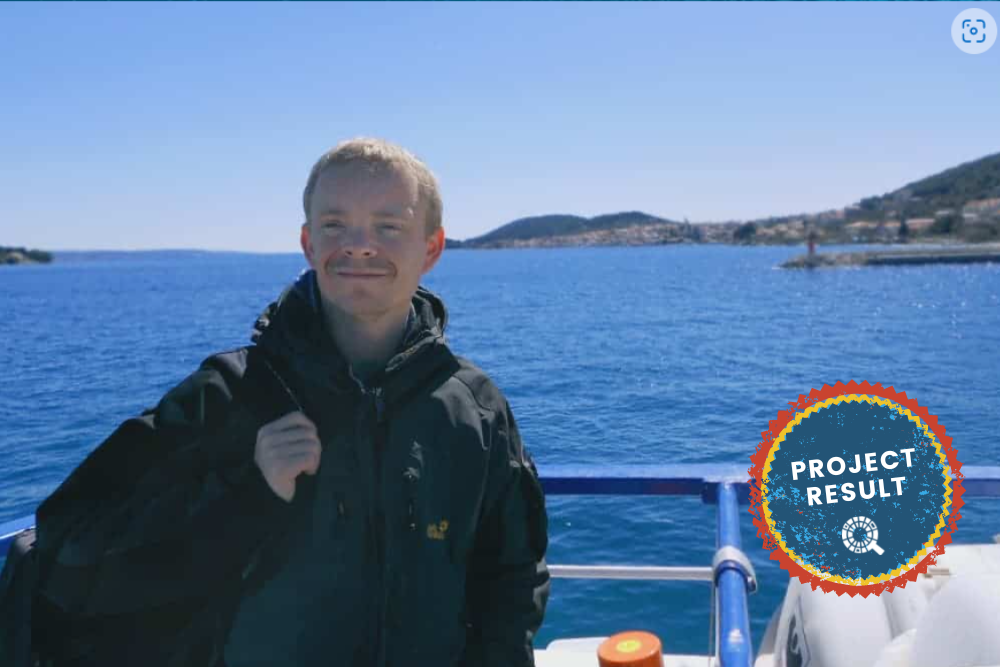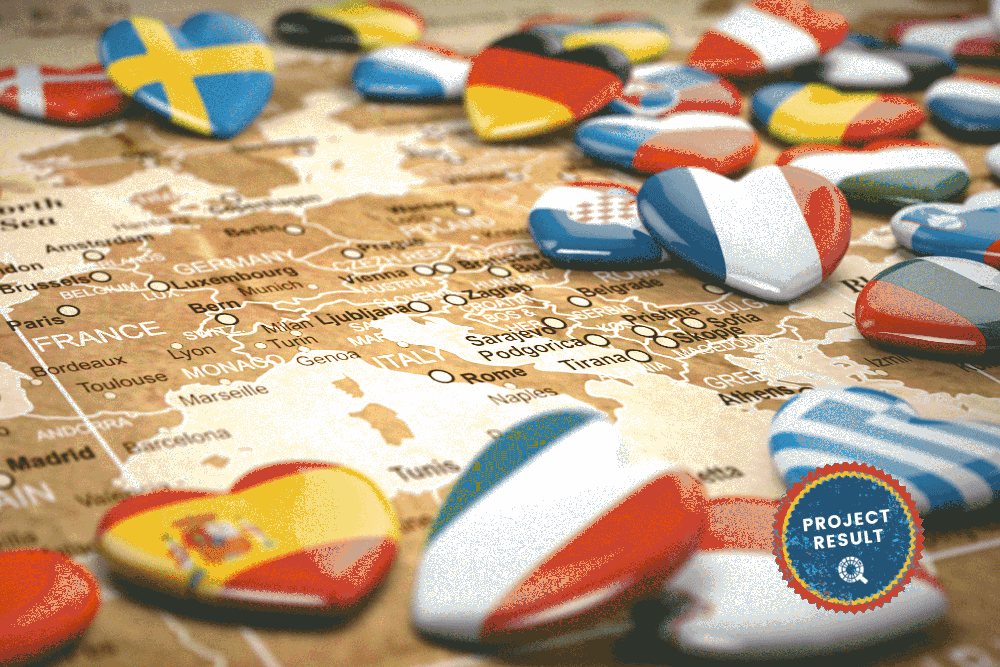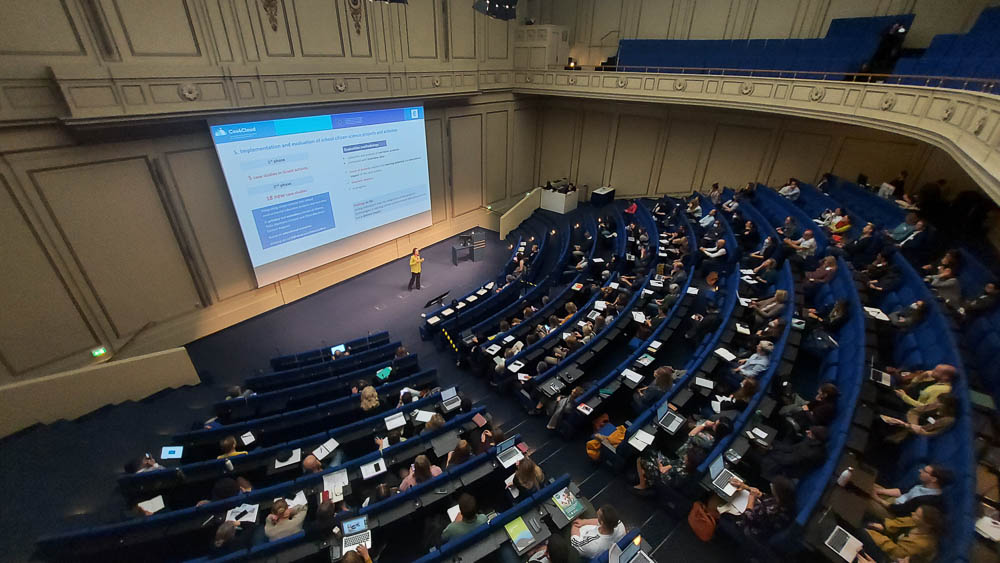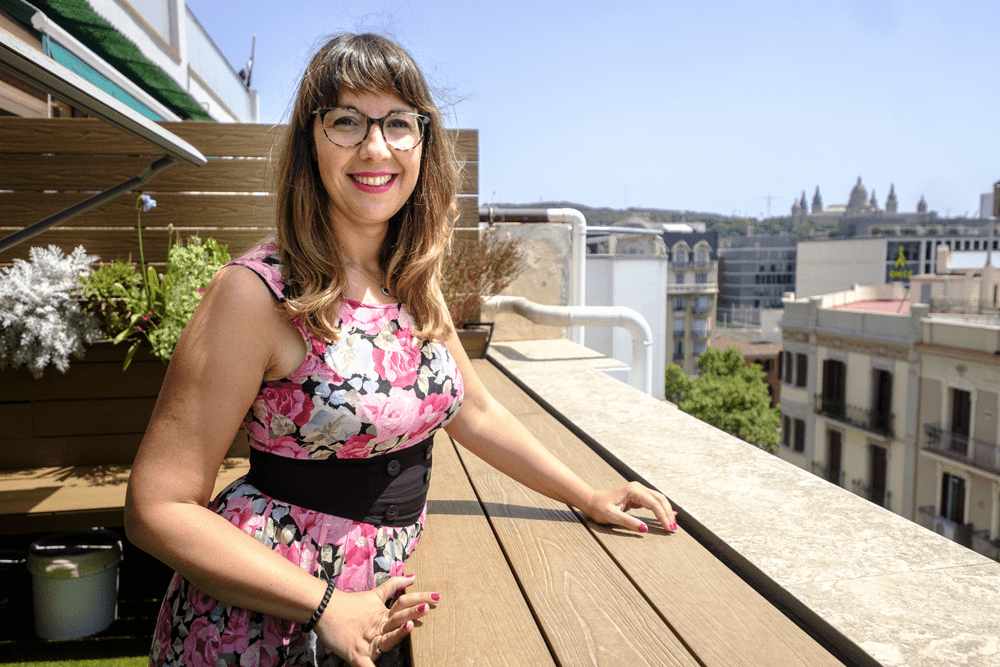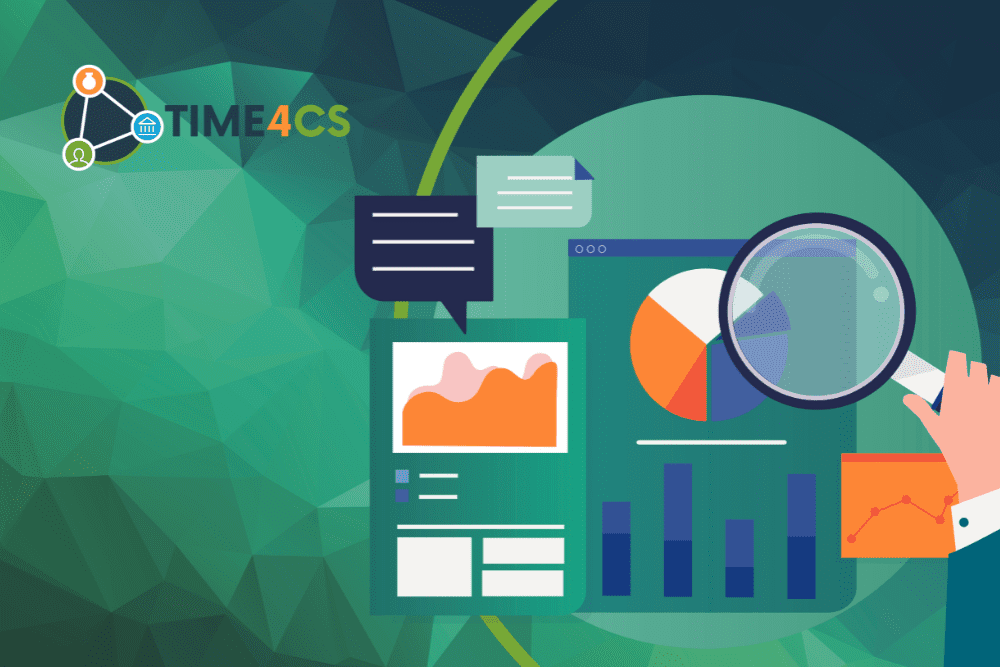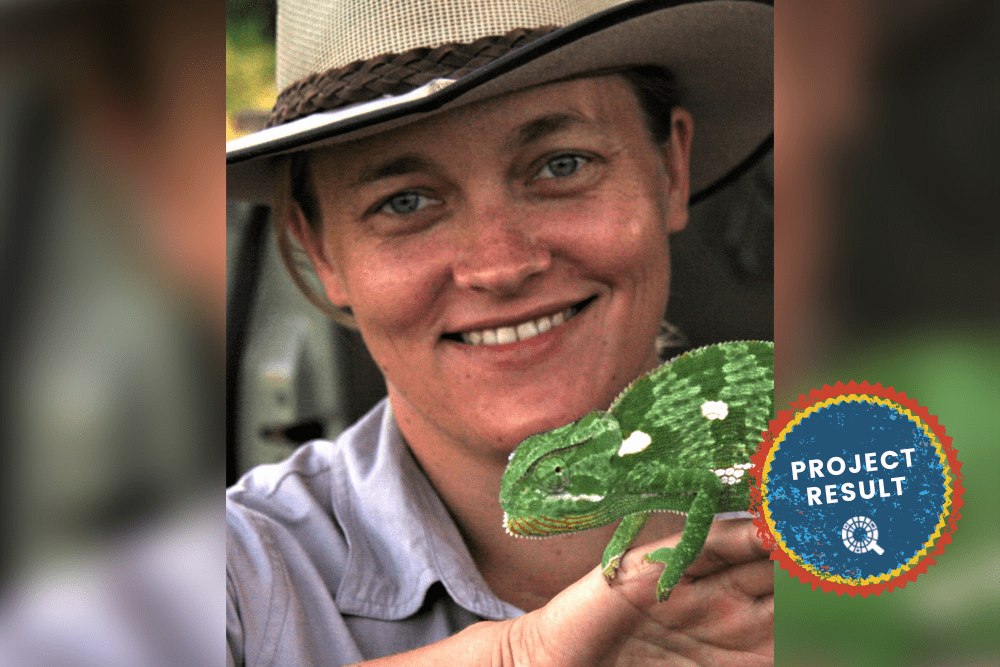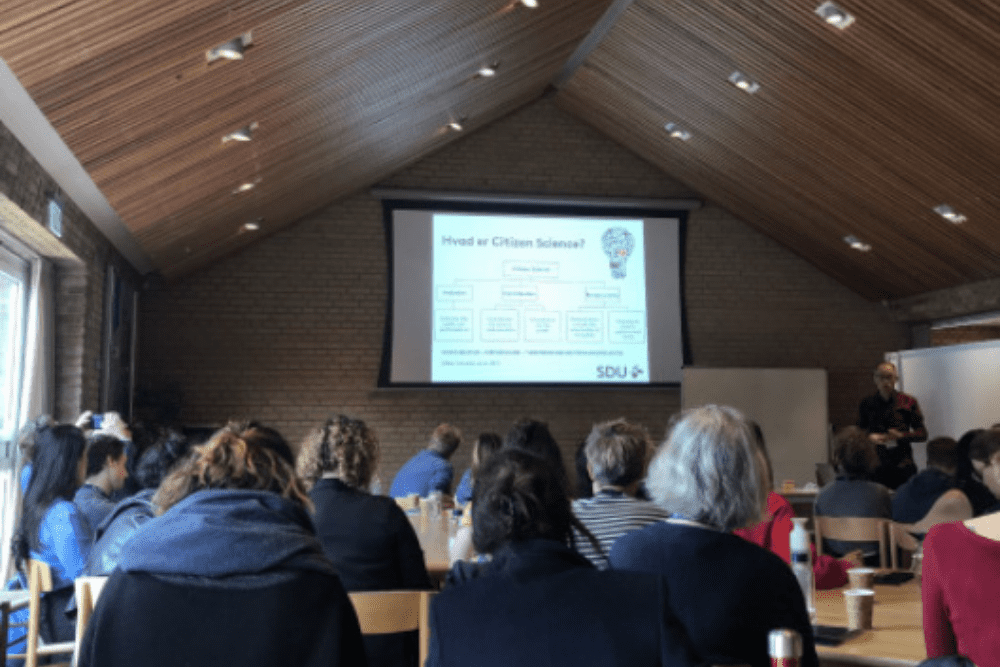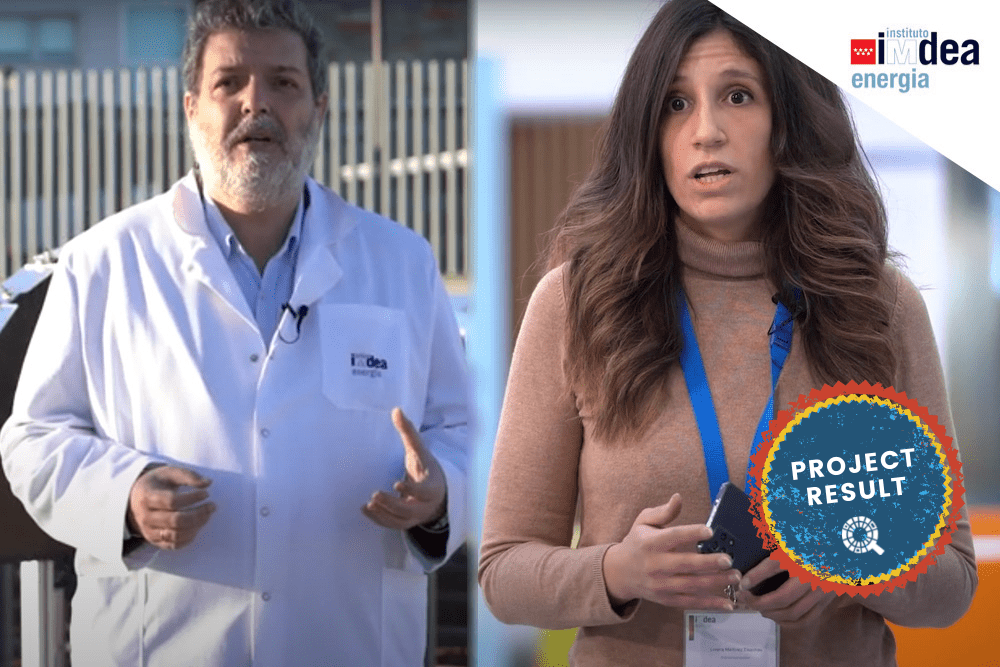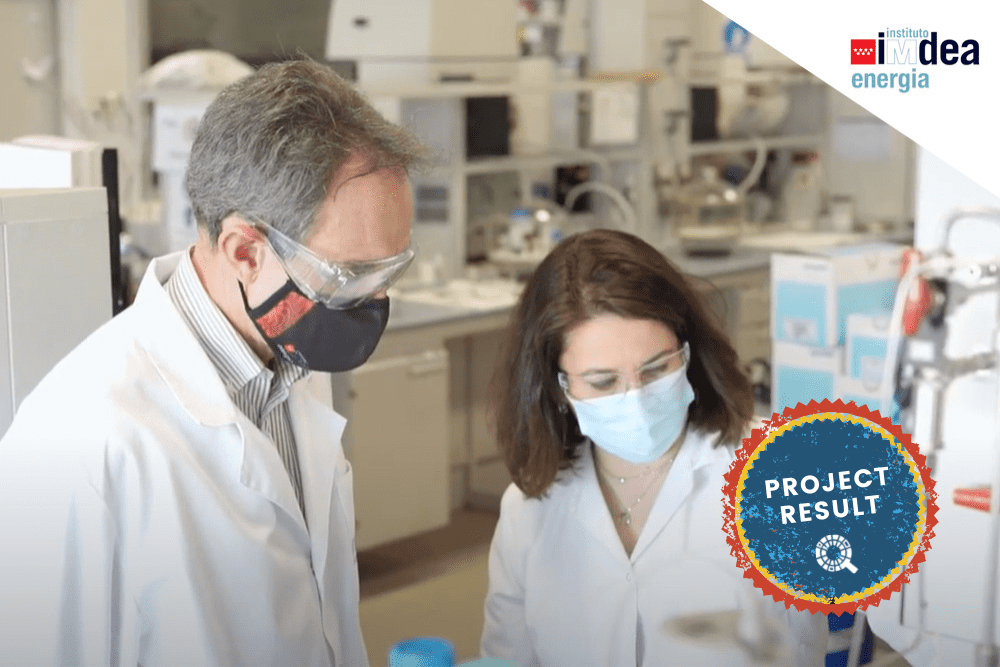Linden Farrer is a Policy officer in the DG Research & Innovation “Open Science” unit. For several years he has been involved in mainstreaming Responsible Research Innovation across Horizon 2020 and the European Research Area, and in the Science with and for Society part of Horizon 2020. He is a regular speaker at Citizen Science events in Europe.
From the perspective of the Science with and for Society (SwafS) part of the Horizon 2020 programme, there were several goals behind supporting and exploring citizen science
Sally Reynolds: The European Commission has been a key player in supporting the growth of interest in Citizen Science in recent years, what do you believe have been the main outcomes of this support?
Linden Farrer: Firstly, it was a good way of working towards SwafS objectives by bringing science and society together – to encourage mutual learning between different actors in the research and innovation system, to improve the quality of the science, and to encourage societal learning.
Secondly, the SwafS activities have strengthened the evidence base on how to engage with maximum impact (e.g. CS-Track), supported mutual learning, networking and capacity building (e.g. EU-Citizen.Science), and piloted co-design/co-creation and encouraged ‘beacons’ of good practice across disciplinary areas (e.g. the many excellent bottom-up RIA projects).
I’d like to think that citizen science is in a stronger position to contribute to research and innovation now. Awareness of it has increased and there is quite a lot more attention to developing and supporting it within member states and institutions and within the EU Framework Programme.
S.R.: What are the main contributions being made by Citizen Science in different parts of Europe in terms of meeting important societal challenges?
L.F.: For the Commission, citizen science is a way to improve the quality and responsiveness of research and innovation, increase the effectiveness of its funding by leveraging distributed intelligence and collective capabilities, and improve the science-society relationship including societal trust.
Citizen science is likely to lead to greater relevance of research and innovation for citizens and society, and hence facilitate uptake and behavioural changes in support of action
S.R.: Many different descriptions and definitions of Citizen Science exist, do you think this hinders the growth of the phenomenon?
L.F.: It seems only natural that citizen science has different descriptions and definitions in circulation. This is a reflection of its rapid development, the broad range of disciplines that can be implicated, the different practices it can encompass, and the various aims and anticipated outcomes of the efforts.
In Horizon Europe citizen and societal engagement is envisioned as taking place in terms of co-design (e.g. developing research agendas), co-creation (e.g. involving citizens and/or end-users in developing new knowledge and innovations), and co-assessment (e.g. continual contribution to governance). Taking a broad approach facilitates the promotion of citizen science across all areas of science and innovation and avoids (strict) definitional exercises that could potentially close-off innovative approaches.
S.R.: What type of information do you believe policy makers need in order to support the growth of Citizen Science initiatives that really engage citizens in scientific research in Europe?
L.F.: One is evaluation evidence showing the added value to the scientific process and the other benefits of involving citizens versus a more ‘closed’ approach.
A second is success stories; these can be based on sound evidence, but should emphasise how citizen science played a role in solving a particular problem.
A third type of information is ‘intelligence’: for instance, areas where citizen science is making a contribution, areas where opportunities exist for citizen science but are not being seized on by practitioners, and areas where policy makers need to open up or create opportunities.
S.R.: What about the role of Citizen Science initiatives in providing data that can have an impact in terms of policy, how well advanced is this aspect of Citizen Science?
L.F.: For instance, in the area of environmental monitoring, the Commission recently published a Staff Working Document on citizen science. It includes recommendations for promoting data quality and interoperability standards and sharing tools.
Citizen science already provides high (and sometimes best) quality data in a variety of scientific domains, but there are difficulties enabling citizen science-derived data to be taken up in official monitoring exercises
S.R.: Where do the main obstacles lie in your opinion to the future growth of Citizen Science in Europe?
L.F.: I see two main obstacles:
The first lies with the trajectory science as an institution and career path have taken in recent decades. Work has recently begun to try and open up science – as part of the Open Science agenda – in terms of reforming research(er) assessment, incentives and rewards, training, dedicated supports for engagement and open collaboration. Basically, we would like to see citizen science being a mainstream approach, employed much more widely and frequently than it is currently.
The second obstacle relates to capacity within Europe’s R&I system to conduct citizen science. Are there enough researchers who are able to conduct citizen science? Are there sufficient citizen science organisations and infrastructures able to support the activities? How do we ensure that citizen science builds on sometimes well-established good practices and avoids ethical and other pitfalls that could be harmful to participants and the field as a whole? How do we ensure citizen science converges into ‘mainstream’ science, rather than being silo’d from it? These are things we need to be mindful of.
S.R.: How extensively will the European Commission be supporting Citizen Science in future funding programmes?
L.F.: Horizon Europe has only just begun and the first Work Programmes indicate there are lots of opportunities for citizen science to be applied across all parts of the programme. Combined with the excellence evaluation award criterion that asks for consideration of citizen and societal engagement, we can expect a fair number of projects focused on citizen science – or including citizen science activities within them – to be supported. However, we need to keep an eye on this and understand how the system operates in practice and be prepared to respond if necessary.
S.R.: Many thanks for your input Linden.
